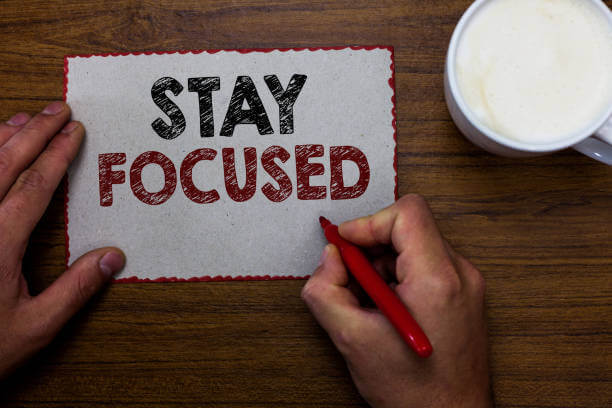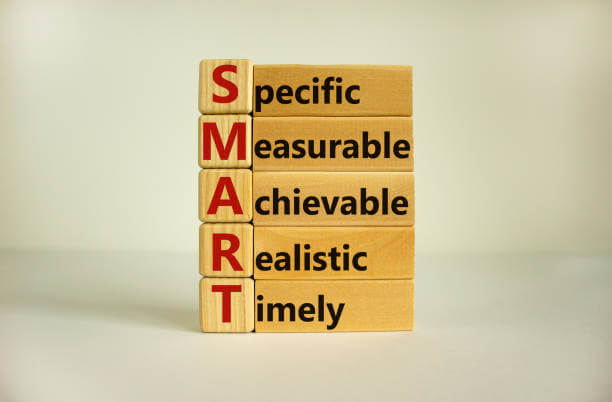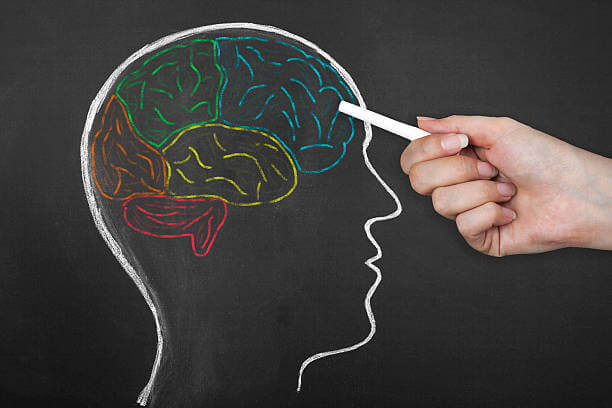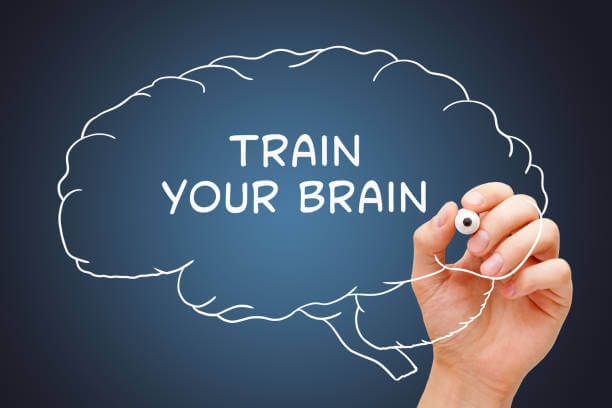Mental clarity is the state of having a clear and focused mind. It means being able to think clearly, logically, and creatively without being distracted or overwhelmed by irrelevant thoughts or emotions. Mental clarity is essential for making good decisions, solving problems, learning new things, and performing well in any task or activity.
What is Mental Clarity?
Mental clarity is the ability to think clearly and focus on tasks. It is also the ability to understand and process information effectively. When you have mental clarity, you are able to:
- Focus on your thoughts and avoid distractions
- Think creatively and come up with new ideas
- Make sound decisions
- Learn new things quickly and easily
- Remember information accurately
- Solve problems effectively
Mental clarity is important for all aspects of our lives. It allows us to be more productive and successful at work and school, and it also helps us to enjoy our personal relationships and hobbies more fully.
Here is a unique analogy to help you understand mental clarity:
Imagine your mind as a lake. When the lake is clear, you can see all the way to the bottom and spot any obstacles or dangers. However, when the lake is murky, it is difficult to see what is ahead and you are more likely to make mistakes.
Mental clarity is like a clear lake. When you have mental clarity, you can see all of your options and make informed decisions. However, when your mind is clouded with stress, anxiety, or other distractions, it is difficult to think clearly and you are more likely to make mistakes.
There are many things you can do to improve your mental clarity, such as getting enough sleep, eating a healthy diet, exercising regularly, and practicing mindfulness. You can also boost your mental clarity by taking breaks throughout the day, avoiding distractions, and setting realistic goals.
If you are struggling to maintain mental clarity, there are a few things you can do. First, try to identify the factors that are contributing to your problems. Are you getting enough sleep? Are you eating nutritious foods? Are you getting enough exercise? Are you managing stress effectively? Once you have identified the problem areas, you can start to make changes.
If you are still struggling to improve your mental clarity on your own, talk to a doctor or mental health professional. They can help you identify any underlying medical conditions that may be affecting your mental health and develop a treatment plan that is right for you.
Why is mental clarity important?
Because it can improve your quality of life in many ways. Some of the benefits of having mental clarity are:
- You can be more productive and efficient in your work or study
- You can be more confident and assertive in your communication and interactions
- You can be more creative and innovative in your projects and hobbies
- You can be more calm and relaxed in your daily life
- You can be more happy and satisfied with yourself and your achievements
However, achieving mental clarity is not always easy. There are many factors that can affect your mental state, such as stress, fatigue, anxiety, depression, boredom, distraction, confusion, or lack of motivation. These factors can cloud your mind and impair your cognitive abilities, such as memory, attention, concentration, reasoning, and problem-solving.
Fortunately, there are some tips and strategies that can help you boost your mental clarity and overcome these challenges. In this article, we will share with you 10 tips for boosting your mental clarity, how to improve your mental clarity for work and study, the science of mental clarity, and how mental clarity can help you achieve a more productive and successful life.
10 Tips for Boosting Your Mental Clarity
Here are some simple and effective tips that you can apply to enhance your mental clarity and improve your mental health:
1. Get enough sleep

Sleep is vital for your brain’s health and function. It helps your brain consolidate memories, process information, repair damage, and rejuvenate itself. Getting enough sleep can improve your mood, energy, focus, creativity, and performance.
On the other hand, lack of sleep can impair your cognitive abilities, such as memory, attention, concentration, reasoning, and problem-solving. It can also increase your risk of developing mental disorders, such as depression, anxiety, or dementia.
Therefore, it is important to get at least seven to nine hours of quality sleep every night. To do so, you should follow a regular sleep schedule, avoid caffeine, alcohol, nicotine, or heavy meals before bedtime, limit screen time and exposure to blue light at night, create a comfortable and dark sleeping environment, and practice relaxation techniques before going to bed.
2. Eat a healthy diet

What you eat can affect your brain health and function as well. Eating a balanced diet that includes fruits, vegetables, whole grains, lean proteins, healthy fats (such as omega-3 fatty acids), nuts, seeds (such as flaxseeds), legumes (such as beans), herbs (such as rosemary), spices (such as turmeric), and water can provide your brain with the essential nutrients it needs to function optimally.
These nutrients can help protect your brain from oxidative stress (which causes aging), inflammation (which causes damage), infection (which causes disease), or toxicity (which causes impairment).
On the other hand, eating a poor diet that includes processed foods (such as chips), refined sugars (such as candy), saturated fats (such as butter), trans fats (such as margarine), artificial additives (such as preservatives), or alcohol can harm your brain health and function.
These substances can cause oxidative stress (which causes aging), inflammation (which causes damage), infection (which causes disease), or toxicity (which causes impairment) in your brain.
Therefore, it is important to eat a healthy diet that supports your brain health and function. To do so, you should limit or avoid foods that are harmful to your brain (such as processed foods), eat more foods that are beneficial to your brain (such as fruits), drink enough water (at least eight glasses per day), and take supplements if needed (such as vitamin B12).
3. Exercise regularly

Exercise is another factor that can affect your brain health and function. Exercise can improve your physical health by strengthening your muscles, bones, heart, lungs, immune system, metabolism, blood circulation, etc.
Exercise can also improve your mental health by releasing endorphins (which are natural painkillers), serotonin (which is a mood enhancer), dopamine (which is a reward chemical), norepinephrine (which is a stress reducer), etc. These chemicals can boost your mood, energy, motivation, confidence, self-esteem, etc.
Exercise can also improve your cognitive abilities by stimulating the growth of new brain cells, enhancing the connections between brain cells, increasing the blood flow and oxygen supply to the brain, reducing the risk of brain diseases (such as Alzheimer’s), etc.
These effects can improve your memory, attention, concentration, reasoning, problem-solving, creativity, etc.
Therefore, it is important to exercise regularly to maintain your physical and mental health. To do so, you should aim for at least 150 minutes of moderate-intensity aerobic exercise (such as brisk walking) or 75 minutes of vigorous-intensity aerobic exercise (such as running) per week.
You should also include some strength training (such as lifting weights) and flexibility training (such as stretching) in your routine. You should choose an exercise that you enjoy and that suits your fitness level and goals.
4. Meditate

Meditation is a practice that involves focusing your attention on a single object, such as your breath, a word, a sound, a sensation, or an image. Meditation can help you calm your mind, relax your body, and reduce your stress.
Meditation can also help you improve your mental clarity by increasing your awareness, attention, concentration, memory, and creativity. Meditation can also help you enhance your emotional intelligence, empathy, compassion, and happiness.
There are many types of meditation that you can try, such as mindfulness meditation, transcendental meditation, mantra meditation, guided meditation, etc.
You can also use apps or videos to help you meditate. To meditate effectively, you should find a quiet and comfortable place to sit or lie down, close your eyes or lower your gaze, breathe deeply and slowly, focus on your chosen object, and let go of any thoughts or feelings that arise.
You should meditate for at least 10 minutes per day to experience the benefits of meditation. You can also meditate for longer periods or more frequently if you wish. You should be patient and consistent with your practice and not judge yourself or your progress.
5. Practice mindfulness

Mindfulness is a state of being fully present and aware of what is happening in the present moment without judging or reacting to it.
Mindfulness can help you improve your mental clarity by reducing your stress, anxiety, depression, rumination (which is dwelling on the past), worry (which is fretting about the future), or distraction (which is being pulled away from the present).
Mindfulness can also help you improve your cognitive abilities by enhancing your attention, concentration, memory, learning, problem-solving, etc.
You can practice mindfulness in various ways, such as:
- Paying attention to your senses (such as sight, sound, smell, taste, touch )
- Paying attention to your body (such as posture, movement, sensations )
- Paying attention to your breath (such as rhythm, depth, quality )
- Paying attention to your thoughts (such as content, tone, origin )
- Paying attention to your feelings (such as emotions, moods, attitudes )
- Paying attention to your actions (such as speech, behavior, habits )
- Paying attention to your surroundings (such as people, objects, events )
You can practice mindfulness anytime and anywhere by simply bringing your attention back to the present moment whenever you notice that it has wandered away. You can also practice mindfulness more formally by doing activities that require mindfulness, such as yoga, tai chi, qigong, etc.
6. Take breaks

Taking breaks is another tip that can help you boost your mental clarity. Taking breaks can help you prevent mental fatigue (which is exhaustion caused by prolonged mental effort), boredom (which is lack of interest or stimulation), or burnout (which is extreme stress or exhaustion caused by excessive work or pressure).
Taking breaks can also help you refresh your mind, recharge your energy, restore your motivation, and improve your performance.
You should take breaks regularly throughout the day to maintain your mental clarity and well-being. You should take short breaks (such as five minutes) every hour or so to stretch your body, move around, drink some water, snack on something healthy, etc.
You should also take longer breaks (such as 15 minutes) every few hours to do something relaxing, enjoyable, or rewarding, such as reading a book, listening to music, playing a game, chatting with a friend, etc.
You should also take breaks from work or study at least once a day to do something different or fun, such as pursuing a hobby, learning a new skill, exploring a new place, etc. You should also take breaks from technology at least once a day to disconnect from the digital world and reconnect with the natural world or yourself.
7. Avoid distractions

Distractions are anything that draws your attention away from what you are doing or want to do. Distractions can be external (such as noise, people, phone calls, messages, emails, notifications, etc.) or internal (such as thoughts, feelings, memories, fantasies, etc.).
Distractions can interfere with your mental clarity by reducing your focus, concentration, memory, learning, problem-solving, etc. Distractions can also affect your mental health by increasing your stress, anxiety, frustration, or boredom.
Therefore, it is important to avoid distractions as much as possible to enhance your mental clarity and productivity. To do so, you should identify the sources of distractions that affect you the most and try to eliminate or minimize them. For example, you can:
- Turn off or mute your phone, computer, or other devices when you are working or studying
- Use headphones or earplugs to block out noise or listen to soothing music or sounds
- Close the door or put a sign on it to prevent interruptions from others
- Use apps or tools that block or limit access to websites, apps, or games that distract you
- Set a timer or alarm to remind you to focus on your task or take a break
- Write down or record any thoughts or ideas that pop up in your mind and deal with them later
8. Prioritize tasks

Prioritizing tasks is another tip that can help you boost your mental clarity. Prioritizing tasks can help you manage your time, energy, and resources more effectively and efficiently. Prioritizing tasks can also help you reduce your stress, anxiety, confusion, or overwhelm by helping you focus on what is important and urgent and letting go of what is not.
To prioritize tasks effectively, you should use a system or method that works for you. For example, you can use:
- The Eisenhower Matrix: This is a method that divides your tasks into four categories based on their importance and urgency: Do (important and urgent), Plan (important but not urgent), Delegate (not important but urgent), and Eliminate (not important and not urgent). You should do the tasks in the Do category first, then plan the tasks in the Plan category, then delegate the tasks in the Delegate category, and then eliminate the tasks in the Eliminate category.
- The ABCDE Method: This is a method that assigns a letter to each task based on its priority: A (very important), B (important), C (nice to do), D (delegate), and E (eliminate). You should do the tasks in the A category first, then the tasks in the B category, then the tasks in the C category, then delegate the tasks in the D category and then eliminate the tasks in the E category.
- The Pareto Principle: This is a principle that states that 80% of the results come from 20% of the efforts. You should identify the 20% of the tasks that produce 80% of the outcomes and focus on them first.
You should also use a tool or app that helps you organize and track your tasks, such as a calendar, planner, to-do list, etc. You should also review and update your priorities regularly to reflect any changes or progress.
9. Set realistic goals

Setting realistic goals is another tip that can help you boost your mental clarity. Setting realistic goals can help you define what you want to achieve, how you want to achieve it, and when you want to achieve it. Setting realistic goals can also help you motivate yourself, measure your progress, celebrate your success, and learn from your failure.
To set realistic goals, you should use a framework or technique that helps you create specific, measurable, achievable, relevant, and time-bound goals. For example, you can use:
- The SMART Method: This is a method that helps you create goals that are Specific (clear and concise), Measurable (quantifiable and trackable), Achievable (realistic and attainable), Relevant (aligned with your values and purpose), and Time-bound (with a deadline and milestones).
- The OKR Method: This is a method that helps you create goals that are Objectives (what you want to accomplish) and Key Results (how you will measure your success).
- The WOOP Method: This is a method that helps you create goals that are Wish (what you want to achieve), Outcome (what benefits you will get from achieving it), Obstacle (what challenges you will face along the way), and Plan (how you will overcome them).
You should also write down your goals and review them regularly to keep them fresh in your mind. You should also break down your goals into smaller and manageable steps or actions that will help you move closer to your desired result.
10. Reward yourself

Rewarding yourself is another tip that can help you boost your mental clarity. Rewarding yourself can help you reinforce positive behaviors, habits, actions, or outcomes that contribute to your mental clarity and well-being.
Rewarding yourself can also help you increase your dopamine levels, which are responsible for motivation, pleasure, reward, learning, etc.
To reward yourself effectively, you should choose rewards that are meaningful, enjoyable, and appropriate for your achievements. For example, you can reward yourself with :
- A treat (such as chocolate, ice cream, pizza, etc .)
- A gift (such as a book, a game, a gadget, etc .)
- An activity (such as watching a movie, playing a game, going for a walk, etc .)
- A compliment (such as praising yourself, thanking yourself, acknowledging yourself, etc .)
- A break (such as taking a nap, relaxing, meditating, etc .)
You should also reward yourself frequently and consistently to maintain your motivation and momentum. You should also vary your rewards to keep them interesting and exciting.
How to Improve Your Mental Clarity for Work and Study

Mental clarity is especially important for work and study, as it can help you perform better, learn faster, and achieve more. However, work and study can also be challenging, demanding, and stressful, which can affect your mental clarity and well-being.
Therefore, it is essential to take care of your mental clarity for work and study by following some tips and strategies that can help you improve it. Here are some of them:
1. Create a routine
Creating a routine can help you improve your mental clarity for work and study by helping you establish structure, order, and consistency in your daily life. A routine can help you plan your day, manage your time, organize your tasks, set your goals, and follow your habits.
A routine can also help you reduce your stress, anxiety, uncertainty, or confusion by helping you know what to expect and what to do.
To create a routine for work and study, you should:
- Wake up and go to bed at the same time every day
- Have a morning and evening ritual that helps you start and end your day on a positive note
- Schedule your work or study sessions at the same time every day
- Allocate enough time for each task or activity
- Include breaks, meals, exercise, relaxation, etc. in your schedule
- Stick to your routine as much as possible
2. Set up a dedicated workspace
Setting up a dedicated workspace can help you improve your mental clarity for work and study by helping you create a physical environment that supports your mental state.
A dedicated workspace can help you separate your work or study from your personal life, avoid distractions or interruptions, enhance your focus or concentration, boost your productivity or efficiency, etc.
To set up a dedicated workspace for work and study, you should:
- Choose a location that is quiet, comfortable, well-lit, well-ventilated, etc.
- Equip it with the tools, materials, devices, etc. that you need for your work or study
- Decorate it with items that inspire, motivate, or relax you
- Keep it clean, tidy, and organized
- Use it only for work or study
3. Eliminate distractions
Eliminating distractions can help you improve your mental clarity for work and study by helping you avoid anything that draws your attention away from what you are doing or want to do. Distractions can be external (such as noise, people, phone calls, messages, emails, notifications, etc.) or internal (such as thoughts, feelings, memories, fantasies, etc.).
Distractions can interfere with your mental clarity by reducing your focus, concentration, memory, learning, problem-solving, etc. Distractions can also affect your mental health by increasing your stress, anxiety, frustration, or boredom.
Therefore, it is important to eliminate distractions as much as possible to enhance your mental clarity and productivity for work and study. To do so, you should follow the tips mentioned in the previous section, such as turning off or muting your devices, using headphones or earplugs, closing the door or putting a sign on it, using apps or tools that block or limit access to websites, apps, or games that distract you, setting a timer or alarm to remind you to focus on your task or take a break, writing down or recording any thoughts or ideas that pop up in your mind and deal with them later, etc.
4. Take breaks
Taking breaks can help you improve your mental clarity for work and study by helping you prevent mental fatigue (which is exhaustion caused by prolonged mental effort), boredom (which is lack of interest or stimulation), or burnout (which is extreme stress or exhaustion caused by excessive work or pressure).
Taking breaks can also help you refresh your mind, recharge your energy, restore your motivation, and improve your performance.
You should take breaks regularly throughout your work or study sessions to maintain your mental clarity and well-being. You should take short breaks (such as five minutes) every hour or so to stretch your body, move around, drink some water, snack on something healthy, etc.
You should also take longer breaks (such as 15 minutes) every few hours to do something relaxing, enjoyable, or rewarding, such as reading a book, listening to music, playing a game, chatting with a friend, etc.
You should also take breaks from work or study at least once a day to do something different or fun, such as pursuing a hobby, learning a new skill, exploring a new place, etc. You should also take breaks from technology at least once a day to disconnect from the digital world and reconnect with the natural world or yourself.
5. Ask for help when needed
Asking for help when needed can help you improve your mental clarity for work and study by helping you overcome any difficulties, challenges, or obstacles that you may face along the way. Asking for help can also help you learn from others, gain new perspectives, insights, or ideas, receive feedback, support, encouragement, etc.
You should not hesitate to ask for help when you need it for your work or study. You can ask for help from various sources, such as:
- Your teachers, professors, mentors, tutors, etc.
- Your classmates, peers, colleagues, co-workers, etc.
- Your friends, family, relatives, etc.
- Online resources, such as websites, blogs, forums, videos, podcasts, etc.
- Online services, such as courses, programs, apps, tools, etc.
You should also be willing to offer help to others when they need it for their work or study. You can help others by sharing your knowledge, skills, experience, tips, advice, feedback, support, encouragement, etc.
READ ALSO : The Art Of Mindful Listening
The Science of Mental Clarity: How to Improve Your Focus and Concentration

Mental clarity is closely related to focus and concentration. Focus is the ability to direct your attention to a specific object or task and ignore irrelevant stimuli. Concentration is the ability to sustain your attention on a specific object or task for a prolonged period of time.
Focus and concentration are essential for mental clarity because they enable you to process information effectively and efficiently.
However, focus and concentration are not always easy to achieve. There are many factors that can affect your focus and concentration negatively such as stress, fatigue, anxiety, depression, boredom, distraction, confusion, lack of motivation, etc.
These factors can impair your cognitive abilities such as memory, attention, concentration, reasoning, problem-solving, etc.
Fortunately, there are some ways that can help you improve your focus and concentration and enhance your mental clarity. Here are some of them:
1. How the brain works
The brain is the organ that controls all the functions of the body and mind. The brain is composed of billions of nerve cells called neurons that communicate with each other through electrical and chemical signals. The brain is divided into several regions that perform different functions such as vision, hearing, speech, language, emotion, memory, learning, etc.
The brain also has two modes of operation: the default mode network (DMN) and the task-positive network (TPN). The DMN is active when the brain is at rest or wandering.
The DMN is involved in self-referential thinking (such as daydreaming), social cognition (such as empathy), creativity (such as imagination), etc.
The TPN is active when the brain is focused or engaged. The TPN is involved in executive functions (such as planning), cognitive control (such as inhibition), attention (such as selectivity), etc.
The DMN and the TPN are usually anti-correlated, meaning that when one is active, the other is inactive. However, some studies have shown that some people can activate both networks simultaneously, which is called the creative mode.
The creative mode is associated with higher levels of mental clarity, focus, concentration, creativity, innovation, etc.
To improve your focus and concentration, you should try to activate your TPN more often and suppress your DMN. You can do this by:
- Choosing a task or activity that is challenging but not too difficult or easy
- Setting a clear and specific goal for your task or activity
- Breaking down your task or activity into smaller and more manageable steps or actions
- Monitoring your progress and performance
- Adjusting your strategy or approach if needed
You should also try to activate your creative mode occasionally by:
- Switching between different tasks or activities that require different cognitive skills or domains
- Combining different ideas or concepts from different fields or disciplines
- Seeking inspiration from various sources such as nature, art, music, literature, etc.
- Experimenting with different methods or techniques such as brainstorming, mind mapping, etc.
2. What affects focus and concentration
As mentioned earlier, there are many factors that can affect your focus and concentration negatively such as stress, fatigue, anxiety, depression, boredom, distraction, confusion, lack of motivation, etc.
These factors can impair your cognitive abilities such as memory, attention, concentration, reasoning, problem-solving, etc.
To improve your focus and concentration, you should try to avoid or reduce these factors as much as possible. You can do this by:
- Managing your stress by using relaxation techniques such as breathing, meditation, yoga, etc.
- Getting enough sleep by following a regular sleep schedule, avoiding caffeine, alcohol, nicotine, or heavy meals before bedtime, limiting screen time and exposure to blue light at night, creating a comfortable and dark sleeping environment, and practicing relaxation techniques before going to bed.
- Eating a healthy diet by including fruits, vegetables, whole grains, lean proteins, healthy fats (such as omega-3 fatty acids), nuts, seeds (such as flaxseeds), legumes (such as beans), herbs (such as rosemary), spices (such as turmeric), and water in your diet. These nutrients can help protect your brain from oxidative stress (which causes aging), inflammation (which causes damage), infection (which causes disease), or toxicity (which causes impairment).
- Exercise regularly by aiming for at least 150 minutes of moderate-intensity aerobic exercise (such as brisk walking) or 75 minutes of vigorous-intensity aerobic exercise (such as running) per week. You should also include some strength training (such as lifting weights) and flexibility training (such as stretching) in your routine. You should choose an exercise that you enjoy and that suits your fitness level and goals.
- Seeking professional help if you suffer from any mental disorders such as anxiety, depression, etc. You should consult a qualified therapist or counselor who can help you cope with your symptoms and provide you with effective treatments such as medication, psychotherapy, etc.
3. How to improve focus and concentration

In addition to avoiding or reducing the factors that affect your focus and concentration negatively, you should also try to enhance the factors that affect your focus and concentration positively. These factors include:
- Interest: Interest is the feeling of curiosity or enthusiasm that you have for a topic or task. Interest can help you improve your focus and concentration by increasing your motivation, engagement, enjoyment, and learning. To increase your interest, you should:
- Choose a topic or task that appeals to you or that you are passionate about
- Find out more about the topic or task by doing research, reading books, watching videos, listening to podcasts, etc.
- Relate the topic or task to your personal life, goals, values, or purpose
- Share the topic or task with others who share your interest or who can support you
- Challenge: Challenge is the level of difficulty or complexity that a topic or task presents. Challenge can help you improve your focus and concentration by stimulating your brain, enhancing your skills, boosting your confidence, and rewarding your efforts. To increase your challenge, you should:
- Choose a topic or task that is challenging but not too difficult or easy for you
- Set a clear and specific goal for your topic or task
- Break down your topic or task into smaller and more manageable steps or actions
- Monitor your progress and performance
- Adjust your strategy or approach if needed
- Feedback: Feedback is the information that you receive about your progress and performance on a topic or task. Feedback can help you improve your focus and concentration by providing you with guidance, correction, reinforcement, encouragement, etc. To increase your feedback, you should:
- Seek feedback from various sources such as your teachers, mentors, tutors, peers, colleagues, friends, family, etc.
- Use feedback to improve your topic or task by correcting your mistakes, learning from your errors, applying new strategies or techniques, etc.
- Give feedback to others who need it by offering your advice, tips, suggestions, support, encouragement, etc.
- Reward: Reward is the benefit or satisfaction that you get from completing a topic or task. Reward can help you improve your focus and concentration by increasing your dopamine levels, which are responsible for motivation, pleasure, reward, learning, etc. To increase your reward, you should:
- Choose a topic or task that is meaningful, enjoyable, and rewarding for you
- Celebrate your achievements and successes by rewarding yourself with something that you like or want
- Share your achievements and successes with others who can appreciate and congratulate you
- Seek new challenges and opportunities that can provide you with more rewards and satisfaction
Mental Clarity: The Key to a More Productive and Successful Life
Mental clarity is not only important for work and study but also for life in general. Mental clarity can help you achieve a more productive and successful life by helping you:
How mental clarity can help you achieve your goals
Goals are the desired outcomes that you want to achieve in your life. Goals can be personal, professional, academic, or any other aspect of your life that matters to you. Goals can also be short-term or long-term, depending on how much time and effort they require.
Mental clarity can help you achieve your goals by helping you:
- Define your goals clearly and specifically by using a framework or technique that helps you create SMART (Specific, Measurable, Achievable, Relevant, and Time-bound) goals
- Plan your goals effectively and efficiently by breaking them down into smaller and manageable steps or actions that will help you move closer to your desired result
- Execute your goals consistently and persistently by following your plan, monitoring your progress, adjusting your strategy if needed, and overcoming any challenges or obstacles that you may face along the way
- Evaluate your goals objectively and constructively by measuring your results, comparing them with your expectations, celebrating your successes, learning from your failures, and setting new goals if needed
How to use mental clarity to improve your relationships and overall well-being
Relationships are the connections that you have with other people, such as your family, friends, colleagues, co-workers, etc. Relationships can be positive or negative, depending on how they affect your emotions, thoughts, behaviors, and well-being.
Mental clarity can help you improve your relationships and overall well-being by helping you:
- Communicate clearly and effectively with others by expressing your thoughts, feelings, needs, and wants in a respectful and assertive way
- Understand others’ perspectives and emotions by listening actively, empathizing compassionately, asking questions respectfully, and giving feedback constructively
- Resolve conflicts peacefully and constructively by identifying the root causes of the problem, finding common ground, negotiating win-win solutions, and compromising when needed
- Build trust and rapport with others by being honest, reliable, consistent, supportive, and respectful
- Enhance your social skills by being friendly, polite, courteous, confident, and positive
Conclusion
Mental clarity is essential for a happy and successful life. It allows us to focus on our tasks, make sound decisions, and learn new things. There are many things we can do to improve our mental clarity, such as getting enough sleep, eating a healthy diet, exercising regularly, and practicing mindfulness.
If you are struggling to maintain mental clarity, there are a few things you can do. First, try to identify the factors that are contributing to your problems. Are you getting enough sleep? Are you eating nutritious foods? Are you getting enough exercise? Are you managing stress effectively? Once you have identified the problem areas, you can start to make changes.
If you are still struggling to improve your mental clarity on your own, talk to a doctor or mental health professional. They can help you identify any underlying medical conditions that may be affecting your mental health and develop a treatment plan that is right for you.
Here are some additional tips for improving your mental clarity:
- Create a daily routine and stick to it as much as possible. This will help to reduce stress and anxiety.
- Set realistic goals for yourself. Don’t try to do too much at once.
- Take breaks throughout the day, especially when you are working on a difficult task.
- Avoid distractions as much as possible. This means turning off your phone, closing unnecessary tabs on your computer, and finding a quiet place to work.
- Delegate tasks to others when possible.
- Ask for help when you need it.
Remember, mental clarity is a skill that can be learned and improved with practice. Be patient with yourself and don’t be discouraged if you don’t see results immediately. Just keep working at it and you will eventually reach your goals.




